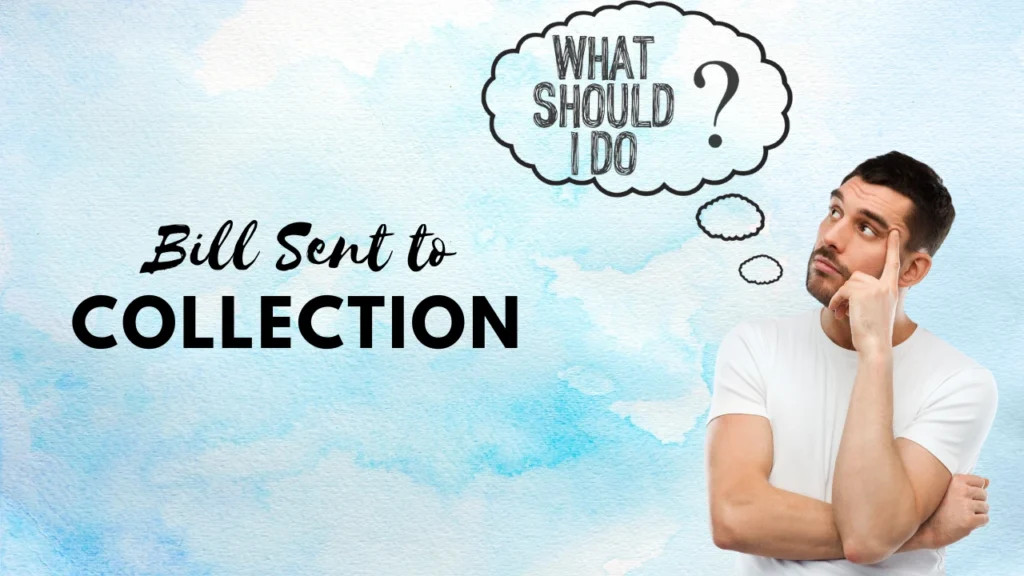What to Do If a Company Sends Your Bill to Collections.When you open a letter or receive a call saying your bill has been sent to collections, it can feel like the ground has shifted beneath you. Suddenly, a minor oversight or unresolved bill transforms into a financial headache. But don’t panic, you still have rights, options, and a pathway forward. The given blog will walk you through what to do if your debt lands in the hands of collectors.
What to Do If a Company Sends Your Bill to Collections-Overview
| Situation | What To Do |
| Bill sent to collections | Stay calm, don’t panic |
| Unsure if it’s correct | Ask for written proof |
| Debt looks wrong | Dispute immediately |
| Debt is valid | Negotiate or pay smartly |
| Want to avoid repeat | Use reminders & track bills |
Why Bills Go to Collections
Companies rarely send accounts to collections overnight. Usually, it happens after repeated reminders, missed due dates, or failure to settle an outstanding balance. When businesses give up on retrieving payment themselves, they turn to third-party collection agencies whose job is to squeeze out repayment.
Immediate Steps After Receiving a Collection Notice
- Stay calm and don’t ignore it: Avoiding the issue makes matters worse.
- Verify the debt: Collectors are required to prove you owe what they claim.
- Check your records: Compare the demand with your receipts, contracts, or emails.
- Understand your rights: Debt collection is regulated under laws like the Fair Debt Collection Practices Act (FDCPA) in the U.S.
- Decide your course of action: Dispute, negotiate, or pay depending on the situation.

Verify the Debt
The first instinct may be to pay quickly and make it disappear, but that can backfire if the claim is inaccurate. Always ask for a “debt validation letter.” Collectors are legally obligated to provide details such as:
- Original creditor’s name
- Amount owed
- Itemized breakdown (fees, interest, principal)
- Your rights to dispute within 30 days
Examine Your Records
Pull out past invoices, bank statements, or emails with the company. Sometimes bills go to collections due to clerical mistakes, payments not being recorded, or even identity theft. If your documentation shows the debt is inaccurate, send a written dispute to the collector right away.
Understand Your Rights
Collectors cannot simply harass or threaten you. Laws like FDCPA give you protection. For example:
- They cannot call you before 8 AM or after 9 PM.
- They cannot disclose your debt to neighbors, employers, or family.
- They must stop contacting you if you send a written “cease communication” letter (though the debt itself may still exist).
Common Options Once Debt Is Verified
Let’s break down the possible paths once you confirm the debt is legitimate.
| Option | Description | Pros | Cons |
| Pay in Full | Clear the entire balance | Debt disappears, no negotiations needed | Might strain finances |
| Negotiate Settlement | Pay less than full balance | Saves money, closes account | May show as “settled” on credit report |
| Payment Plan | Break into smaller installments | Easier on budget | Extends repayment timeline |
| Dispute Debt | Challenge errors or fraud | Protects credit, avoids wrongful payment | Requires strong documentation |
Weigh the Impact on Credit
One of the most frustrating aspects of collections is how they appear on your credit report. A collection entry can significantly lower your credit score, even if you pay it later.
Here is what usually happens:
- Unpaid collection: Stays on credit report up to 7 years.
- Paid collection: Still visible but slightly less harmful.
- Settled for less: Shows account was closed but not fully paid, affecting your credit.
Dispute If Incorrect
If the debt doesn’t belong to you or the numbers don’t add up, dispute it immediately. File your dispute in writing with both the collector and the credit bureaus (Experian, Equifax, TransUnion). Provide evidence like payment confirmations or police reports (if fraud).
Negotiate Like a Pro
Collectors want money, not prolonged arguments. This gives you leverage. You can:
- Offer a lump-sum settlement for less than owed.
- Request a structured payment plan that fits your budget.
- Ask (in writing) for a pay-for-delete agreement.
What Not to Do
- Don’t ignore the notice. Silence can escalate to lawsuits.
- Don’t pay without proof. You may be paying a scammer.
- Don’t overshare personal info. Give only what’s necessary.
- Don’t rely on verbal promises. Always secure written agreements.
Preventing Future Collections
Once you have dealt with the current issue, strengthen your financial defenses:
- Set up autopay or reminders for recurring bills.
- Keep all receipts and statements organized.
- Review credit reports annually to catch errors.
- Build an emergency fund to cushion missed payments.
A More Detailed Look: Rights vs. Misconceptions
Sometimes people confuse collection myths with reality. Here is a quick comparison table to clear the fog which is given below:
| Misconception | Reality |
| Collectors can send you to jail | Debt is a civil, not criminal, matter |
| Ignoring calls makes debt vanish | Silence usually escalates to lawsuits |
| Paying part of debt restarts the clock | True — partial payments can reset statute of limitations |
| Settled debt fully restores credit | Not true — report may still show it as “settled” |
Final Thoughts
Being sent to collections can feel intimidating, but it doesn’t mean financial ruin. The key is staying proactive: verify, dispute if necessary, negotiate wisely, and protect your credit standing. Remember knowledge is your shield, and communication is your strongest weapon.
FAQs for What to Do If a Company Sends Your Bill to Collections
Can I go to jail for unpaid collections?
No, unpaid consumer debts are civil matters, not criminal offenses.
Should I talk to collectors on the phone?
Yes, but keep it short. Ask for everything in writing to avoid confusion.
Can I negotiate my bill down?
Yes, collectors often accept less than full payment. Always request written confirmation.
What if the debt is not mine?
File a written dispute immediately with both the collector and credit bureaus.
